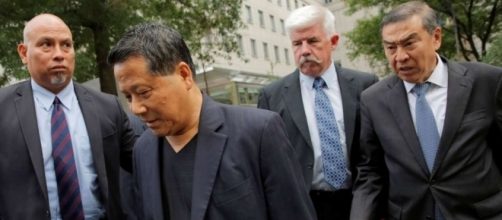The espionage activities of the C.I.A. in china suffered severe setbacks when the Chinese killed or imprisoned many of the sources that the agency depended upon to provide useful information related to various aspects of China.
These actions were started by the Chinese in 2010 and continued for several years, and at the end of it all, C.I.A. had lost more than one dozen sources. Some of the sources were linked to the bureaucracy in Beijing and had apparently become disillusioned with the corruption in the Chinese government.
The loss of sources is reported to be between 18 and 20 and that, of course, is a major stumbling block for the United States to gather information or to verify the authenticity of existing ones.
Who was responsible?
According to New York Times, many of the contacts had ceased to exist because of elimination either by death or by imprisonment, but there was a difference of opinion among the intelligence and law enforcement agencies in Washington on the likely reasons. Both current and former officials of the United States have admitted that the intelligence breach was one of the worst in decades but have different ideas about why it happened.
While one line of thinking was of betrayal by a mole within the setup, another group feels that China had hacked into the agency’s systems by which it maintains its communication links with its agents and operators. Whatever be the reasons, C.I.A. has lost quite a few of its sources, and its espionage activities have taken a beating.
From end 2010 till the end of 2012, the Chinese have eliminated at least a dozen, and one of them was shot in front of his colleagues. It was supposed to be a message for others who might have had links with the agency.
The summary of the loss
It takes plenty of efforts to create a reliable source, and when so many of them are lost, it adds to the frustration of the agency because they have to locate alternatives. In this case, the number of American assets lost in China is a sizeable one, and it would take the time to reset the machinery. The C.I.A. is aware that spying in China is one of its top priorities, but due to the efficient Chinese security system, it is finding it difficult to develop sources in that country.
An analysis of the facts has revealed that some handlers in Beijing followed the same route to the same meeting points which alerted the Chinese surveillance network. Moreover, officers of the C.I.A. are believed to have met their sources in eating joints where devices had been planted to eavesdrop and where the Chinese intelligence actually employed the waiters.
The third and a more relevant theory is the possibility of the Chinese hacking into the communications channel of the C.I.A. to lay their hands on sensitive data.
The bottom-line is that China is gradually emerging as a major player in world affairs and keeping track of its activities on the sly could prove useful in the long run. Hence, C.I.A. should start fresh and reinvent its espionage apparatus to ensure that the interests of the United States are protected.


